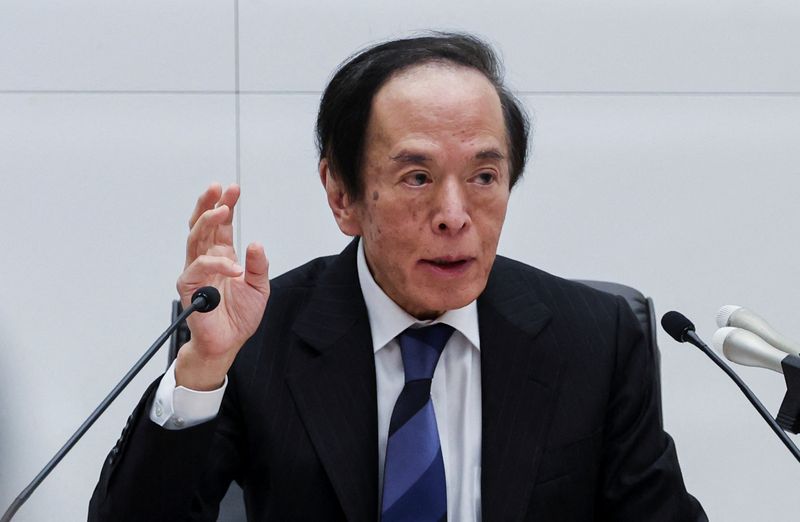By Makiko Yamazaki and Leika Kihara
TOKYO () – Bank of Japan Governor Kazuo Ueda stated on Wednesday that the central bank would closely monitor the potential risks posed by significant fluctuations in ultra-long bond yields affecting short-term lending rates and subsequently having a broader economic impact.
These comments highlight the Bank of Japan’s increasing focus on the recent erratic movements in long-term interest rates, potentially influencing their deliberations next month regarding the speed at which they reduce bond purchases.
Tolong support kita ya,
Cukup klik ini aja: https://indonesiacrowd.com/support-bonus/
In Japan, short- and medium-term interest rates exert a greater influence on the economy compared to super-long yields because of the length of household and corporate debts, according to Ueda.
“However, we should keep in mind that significant fluctuations in ultra-long yields might also impact long-term bond yields as well as those for short and medium-term bonds,” Ueda stated during his parliamentary address.
He further stated, ‘We will closely monitor market trends and their effect on the economy.’
Ueda further mentioned that the significant uncertainties related to U.S. trade policy and its impact on Japan’s economy continue to be substantial.
Last week, yields on ultra-long maturity Japanese Government Bonds (JGBs) reached all-time highs amid a worldwide bond selloff. This shift underscores increasing investor focus on the deteriorating fiscal conditions of developed nations.
These yields dropped on Tuesday following reports that Japan’s government plans to reduce the issuance of long-term bonds, as officials aim to alleviate worries in the markets regarding the deteriorating state of public finances.
The markets are concentrating on how the BOJ will respond during its upcoming policy gathering on June 16-17. At this meeting, the board will reassess the current bond taper strategy set until March and develop new plans aimed at guiding the next financial year and onwards.
After exiting a bond yield control policy last year, the BOJ is cautious about increasing bond purchases or significantly adjusting its current reduction strategy.
Board member Asahi Noguchi, who was previously recognized as a proponent of extensive asset purchases, stated last week that he did not believe the BOJ needed to step in to control increases in bond yields.
However, the market downturn might influence the BOJ board’s discussion about the upcoming speed of bond tapering, according to several analysts.
According to a summary published by the central bank, many bond market participants queried by the BOJ advocated for keeping or moderately reducing the rate of tapering starting from fiscal year 2026.
(Reported by Makiko Yamazaki and Leika Kihara; additional reporting by Takahiko Wada; edited by Christian Schmollinger and Sam Holmes)







